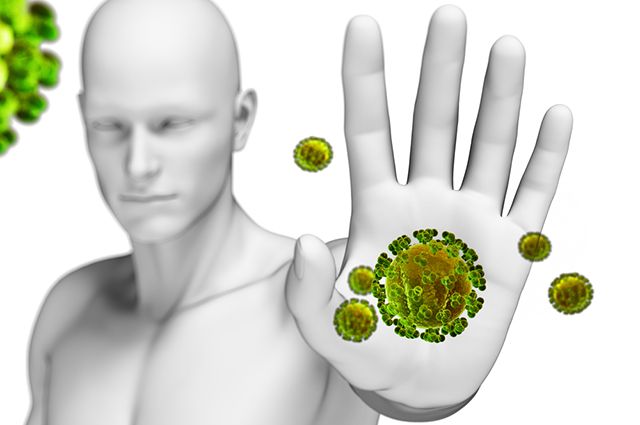Immune Disorders Treatment – Biomedicine
Autoimmune disease treatment
Autoimmune disease (known as immune disorders) is a term used to describe diseases which lower the activity of the immune system or cause the immune system to be over active. When the immune system is over active, it attacks healthy tissues damaging them in the process. On the contrary, i.e. when the immune system is under active, it makes the body vulnerable to infections. Autoimmune disorders are differentiated by the type of body tissues/organs affected.
Causes of immune disorders
To understand autoimmune disease, you need to understand how the immune system works. In normal cases, the white blood cells (which are part of the immune system) protect the body against harmful substances known as antigens (i.e. viruses, bacteria, cancer cells, etc.) The immune system releases antibodies to destroy antigens when they invade the body.
In individuals suffering with autoimmune disease, the immune system has difficulties differentiating between antigens and healthy body tissues. This results in violent reactions which destroy healthy/normal body tissues. The immune system usually has a hard time differentiating between antigens and healthy body tissues because of the changes that antigens and some drugs trigger when they enter the body. This is true among individuals who have genes which make them susceptible to autoimmune disorders.
Symptoms of autoimmune disease
Autoimmune disease symptoms include, but aren’t limited to;
1. Destruction of one/more types of body tissues or organs.
2. Abnormal organ growth.
3. Changes in how an organ/s function. Autoimmune disease usually affects tissues and organs such as; connective tissues, blood vessels, muscles, joints, red blood cells, the skin and endocrine glands (pancreas or thyroid).
Treatment available

Autoimmune disease treatment revolves around reducing/eliminating symptoms, controlling the body’s autoimmune process as well as maintaining the body’s ability to fight diseases. Treatment varies depending on the type of autoimmune disease. Some patients require supplements to replace the vitamin or hormone that the body lacks. Examples of supplements and vitamins used to treat autoimmune diseases include; thyroid supplements and vitamins like B12.
If the autoimmune disease affects the blood, treatment can involve blood transfusions. Autoimmune disorders affecting the joints, bones, and muscles get treatments that help boost movement among other functions. Some patients may also receive immunosuppressive medicines i.e. cyclophosphamide, mycophenolate and azothioprine meant to control immune system responses.
Types of immune disorders
There are many types of autoimmune diseases (over 80 different types). Let’s start by discussing the most common:
1. Rheumatoid arthritis
Rheumatoid arthritis is an autoimmune disease which causes inflammation of joints as well as surrounding tissues and organs. Rheumatoid arthritis can be traced to infections as well as gene/hormonal changes. The disease causes the immune system to release antibodies attached to joint linings. These antibodies attack the joints causing symptoms like inflammation, swelling, and pain which affect the fingers, wrists, knees, and ankles. The disease begins slowly with minor joint pain, fatigue, and stiffness.
Symptoms:
In-depth symptoms include;
• Morning stiffness (that can last for an hour or more) accompanied by joint tenderness and/or warmth.
• Joint pain.
• Loss of range of motion in joints over time. May result in joint deformation.
• Chest pain (pleurisy).
• Dry eyes/mouth.
• Eye burning or itchiness which may be accompanied by a discharge.
• Numbness, tingly feeling or burning on the feet and hands.
• Sleep difficulties.
Diagnosis:
Rheumatoid arthritis is usually diagnosed using special tests such as the rheumatoid factor and Anti-CCP antibody tests.
Other tests include; synovial fluid analysis, joint x-rays, C – reactive protein, joint ultrasound/MRI, complete blood count and erythrocyte sedimentation rate tests.
Treatment:
If left untreated, rheumatoid arthritis can cause permanent joint damage. Treatment includes oral or injectable medicines meant to reduce the immune system’s over-activity.
2. Lupus
Lupus is an immune system disorder that results in chronic inflammation which affects many different body organs/systems like the joints, blood cells, kidneys, skin, heart, brain, and lungs. Lupus is hard to diagnose simply because its signs/symptoms resemble those of other diseases. The most notable sign is; a facial rash which occurs on both cheeks. This symptom is however unique to some lupus cases only, not all of them.
Causes:
Some people are susceptible to lupus from birth. Others may get lupus after infections or exposure to some drugs or even sunlight. The causes are therefore environmental and genetic although medication like some types of antibiotics, blood pressure medication, and anti-seizure medicines have been found to cause lupus.
Symptoms:
It’s worth noting that lupus symptoms can develop slowly or suddenly. The symptoms can be mild or severe, temporary or permanent. Most of the people who suffer from lupus have mild symptoms characterized by episodes known as flares. These episodes can get worse and then improve or disappear completely for some time before reappearing again. It’s also worth noting that the symptoms are subject to the body systems affected by the disease.
Here are the most common symptoms;
• Fever and fatigue.
• Joint stiffness, swelling, and pain.
• Butterfly-shaped facial rash covering the cheeks and nose bridge.
• Skin lesions (which may appear or worsen after exposed to sunlight.
• Raynaud’s phenomenon (a person’s toes and fingers may turn blue or white when exposed to stressful situations or cold).
• Chest pain.
• Shortness of breath.
• Headaches, memory loss, and confusion.
• Dry eyes.
Immune disorders doctors:
Speak with the medical team at Future Clinic if you experience lupus symptoms such as persistent fatigue or aching, ongoing fever and unexplained facial rush. It’s worth noting lupus has no cure. The treatments available are meant to control symptoms. People who suffer from medication-induced lupus usually get better/healed when they stop using the medication in question.





